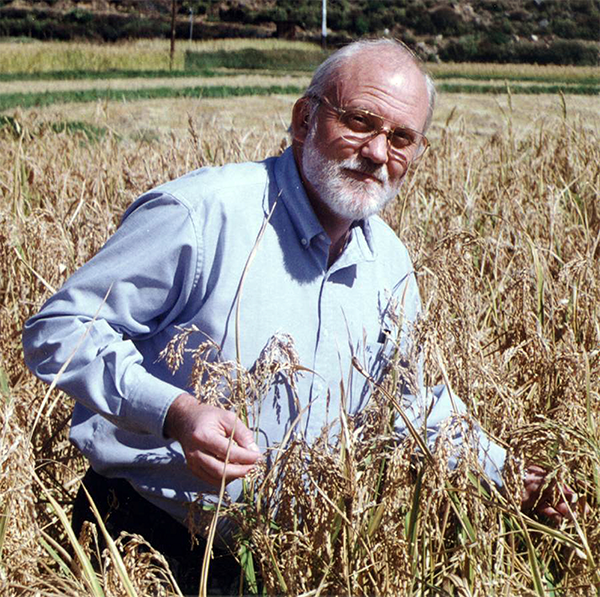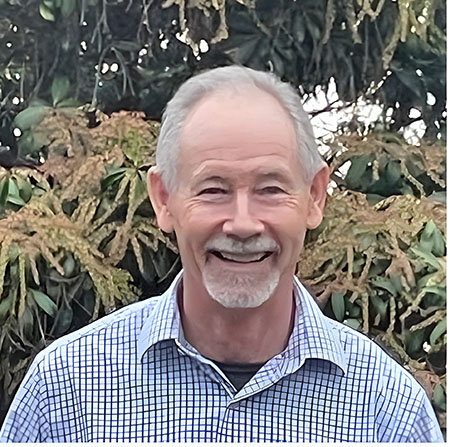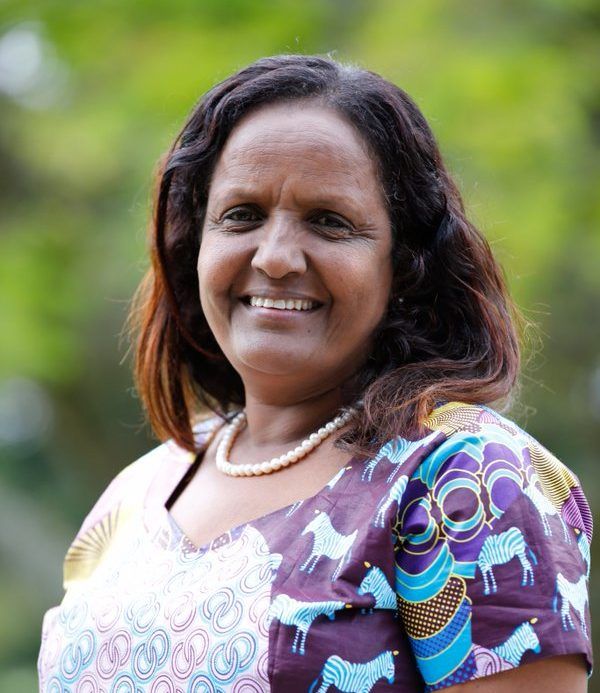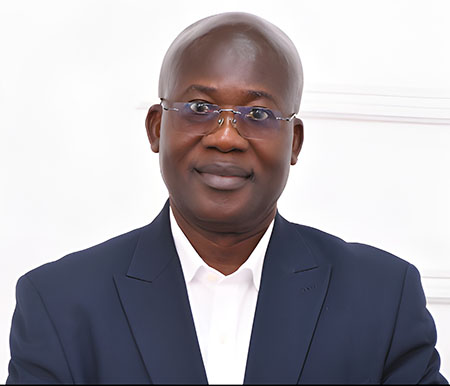- K-State home
- Feed the Future Innovation Lab for Climate Resilient Cereals
- About
- External Advisory Council
External Advisory Council
Dr. Bob Zeigler

Chair
Dr. Robert (“Bob”) Zeigler devoted his professional career to sustainably improving cereal production, primarily rice, in developing countries. Originally trained as a plant pathologist, he led increasingly complex multidisciplinary research programs in Africa, Latin America and Asia, culminating in his appointment as Director General of the International Rice Research Institute in 2005, a position he held until his retirement in 2016. He has worked closely with policy makers and very senior government officials in rice-producing countries in Africa, Latin America and Asia to link the potential of new technologies to political and economic realities. Dr. Zeigler remains active, advising innovative startup companies launching technologies contributing to sustainable agriculture and low GHG emitting rice cultivation. He also actively engages with non-profit organizations working to improve the livelihoods of small holder farmers. He now lives with his family in Portland, Oregon.
Dr. Jeff Ehlers

Jeff.Ehlers@gatesfoundation.org
Jeffrey Ehlers is a member of the Seed Science and Varietal Improvement team within the Crops R&D initiative at the Bill and Melinda Gates Foundation (BMGF). With a PhD in Genetics and Agronomy from the University of California, Davis, earned in 1984, Jeff brings over four decades of expertise to his current role. He spent two decades at the University of California-Riverside (UCR), where he served as a legume breeder and plant geneticist, contributing significantly to the state’s legume industry.
During this tenure, Jeff also spearheaded NARS capacity development projects across Senegal, Ghana, Mozambique, and Burkina Faso, in projects funded by USAID. During this time, Jeff also led efforts to develop foundational cowpea genomic resources that would be key to the modernization endeavors of the cowpea breeding program at IITA. He is a prolific author, with over 65 technical articles and reviews on legume breeding and genetics to his credit. Prior to his tenure at UCR, he honed his skills in private industry as a wild rice breeder in northern California and between 1985 and 1988, Jeff served as a cowpea and soybean breeder based in Kenya with the International Institute of Tropical Agriculture (IITA). His current investment portfolio at BMGF includes the Accelerated Varietal Improvement and Seed Systems for Africa (AVISA) project led by CIMMYT, focused on breeding modernization and seed delivery of sorghum, millet, cowpea bean and groundnut across eight countries in sub-Saharan Africa. Moreover, Jeff's contributions extend to the MERCI project, led by EIAR, aimed at modernizing breeding programs for maize, wheat, sorghum, bean, and chickpea in Ethiopia. He leads the Breeding Program Assessment Tool (BPAT) investment engaging the University of Queensland to assess breeding programs across CGIAR and NARS programs.
He also leads the IITA Public-Private Partnership Platform, facilitating collaborations between CGIAR and the private sector and the 1000FARMS Platform,led by the Alliance of CIAT and Bioversity, that employs digital approaches and crowd-sourcing to efficiently execute on-farm trials , led by the Alliance of CIAT and Bioversity, scale across the CGIAR. His most recent investment is a project called Soybean Genetic Improvement for Africa, that leverages rapid cycle genomic selection to accelerated development of improved soybean breeds small-scale producers on the continent.
Dr. Fetien Abera

Tenured Professor, Former Acting President and Research Vice President – Mekelle University
Visiting Professor – University of California, Davis
Member – ISDC-CGIAR
Professor Fetien Abera is a plant breeding and seed expert and has been a professor at Mekelle University for over 30 years. She was the first female lecturer and the first female professor of Plant Breeding and Seed. During her years at Mekelle, Professor Abera served as Interim President and Research Vice President, making her the first female president of the university and only woman currently leading a public university.
She also serves as a visiting professor at the University of California, Davis. Professor Abera is a member of the CGIAR Independent Science for Development Council (ISDC), which is tasked with analyzing research trends and advising on the CGIAR system’s long-term research strategy. Feed the Future has been privileged to have her expertise as Ethiopia’s lead for the Post Harvest Loss Innovation Lab (PHLIL) and, now, as a member of CRCIL’s External Advisory Council (EAC). Previously, she worked as a researcher at Ethiopian Institute of Agricultural Research (EIAR). She is a pioneer in participatory barley breeding in Ethiopia, conducting work that is related to five, widely used varieties of barley.
An AWARD Fellow in 2010, Professor Abera has exemplified leadership and worked to increase opportunities for the next generation of scientists, especially women. In recognition of her incredible service, the professor has received several notable awards including Impact Research and Science in Africa (IMPRESSA) Award of the Regional Universities Forum for Capacity Building in Agriculture (RUFORUM) in 2017, Ethiopian Women of Excellence (2015), the East African Regional Laureate of African Union Kwame Nkrumah Awards for Scientific Excellence (2014).
Dr. Eric Danquah

Eric Yirenkyi Danquah holds a professorship in Plant Genetics at the University of Ghana (UG). He is a former Dean of International Programmes and a former Director of the Biotechnology Centre at UG. As the founding Director of the West Africa Centre for Crop Improvement (WACCI), UG, since 2007, he has been pivotal in training a new generation of plant breeders focused on enhancing staple crops for Africa. His role extends internationally as an Adjunct Professor at Cornell University, USA, the University of Western Australia, and Murdoch University, Australia. Danquah was instrumental in laying the groundwork for the African Plant Breeders Association (APBA), serving as its first president. He contributes his expertise to various international boards across the globe.
Danquah's research interests lie in identifying beneficial genes/traits to enhance staple crops across Africa. He has secured over US$40 million in funding, leading to significant advancements including the development of world-class infrastructure for plant breeding education at UG. His contributions to agricultural develoment include 166 peer-reviewed journal articles and the release of improved maize and tomato hybrids in Ghana.
Danquah achieved his BSc degree in Crop Science from the University of Ghana and furthered his studies with an MPhil in Plant Breeding and a PhD in Genetics from the University of Cambridge, UK. His work has earned him several accolades, including the UG Distinguished Award for Meritorious Service in 2014, the 2018 Laureate, Global Confederation of Higher Education Associations in Agriculture and Life Sciences (GCHERA) World Agriculture Prize, and the 2022 Laureate, Africa Food Prize. In 2023,and 2024, Reputation Poll International recognized him as one of the 100 most Reputable Africans. The African Genius Awards also honored him with an Outstanding African Achiever Award in 2023. Under his leadership, WACCI has grown into a beacon of excellence, enrolling 160 PhD students from 19 African countries and boasting 111 graduates who are now at the forefront of national agricultural research initiatives across the continent. His influence extends beyond academia through his commitment to fostering global educational links and having a profound impact on food security and sustainable development in Africa and beyond.